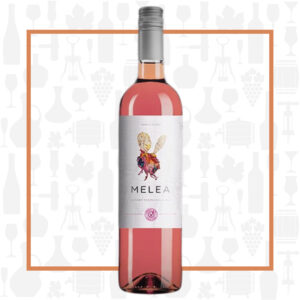Cellar Profile
Melea wines are the creation of the Madrid-based Long family, one of Spain’s premier negociants. This small, talented team of wine professionals have been dedicated to sourcing, marketing and exporting award-winning Spanish wines for nearly two decades. The Melea project is a limited range of organic, vegan wines inspired by the rare bee Anthophora Melea. Bees play a vital role in our food supply chain. They are also important actors in the production of wine, pollinating the vines and carrying around the natural yeasts of the vineyard that are used in the fermentation process.
Region
Castilla-La Mancha is located on a large plateau in Spain’s interior. The third largest autonomous region is Spain, it is surrounded by three different mountain ranges, enjoying an interesting cross between a Mediterranean and Continental climate. Soils are mostly reddish-brown clay, with high levels of limestone and chalk. There is no real dominant central city in the region, but rather small villages and communities scattered throughout, each enjoying its own wine and gastronomic traditions. Known primarily for producing bulk wine, some producers have taken great strides in recent years to restrict yields and take more care with viticulture, and the region now produces elegant and complex wines that offer tremendous value.
Vineyard
Melea’s vineyards are planted in limestone and chalk-rich sandy soils. Practicing dry farming, these Organic certified vines are greatly stressed by dense plantings and well-drained soils, producing a scant 3kg of fruit per plant. The evenings see a fairly large diurnal shift in temperature, which helps maintain acidity and freshness, and produces wines with complexity and depth of flavour.
Varieties
Tempranillo is an early-ripening variety that tends to thrive in chalky vineyard soils such as those of the Ribera del Duero and Rioja regions of Spain. In Portugal, where the grape is known as Tinto Roriz and Aragonez, it is blended with other varieties to produce Port. In 2015, Tempranillo was the fourth most widely-planted wine grape variety in the world; 87% of these plantings are in Spain. Depending on vineyard age and mesoclimate, tempranillo-based wines result in notes ranging from strawberries, blackcurrants and cherries to prunes, chocolate and tobacco.
Winemaking
After hand-harvesting the dry-farmed vineyards, the grapes are gently crushed then macerated for 4-5 hours at temperature control in order to extract colour and complexity. After maceration, the wine was fermented in stainless steel, using indigenous yeasts, before a gentle fining using a vegan-pea mixture.
Tasting Notes
Pale salmon colour with aromas of raspberry and strawberry. On the palate, the berries continue, along with some watermelon and mineral notes. Good balancing acidity keeps the wine lively and fresh. Chill lightly and enjoy with tuna melts or spring salads.

 info@buyersandcellars.ca
www.buyersandcellars.ca
info@buyersandcellars.ca
www.buyersandcellars.ca